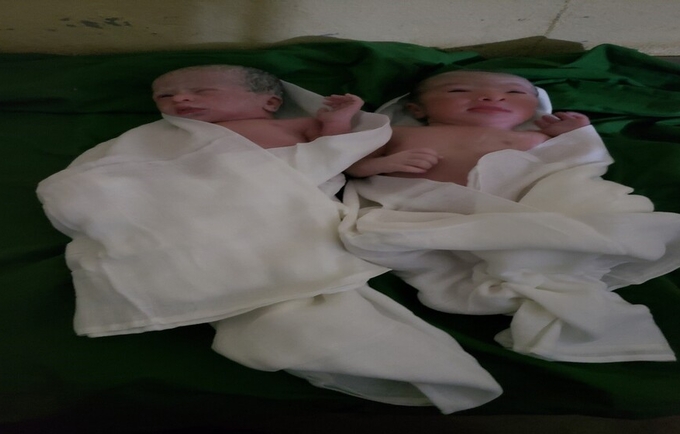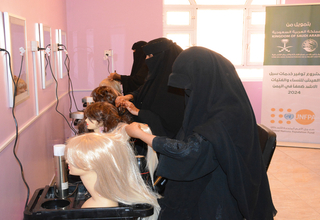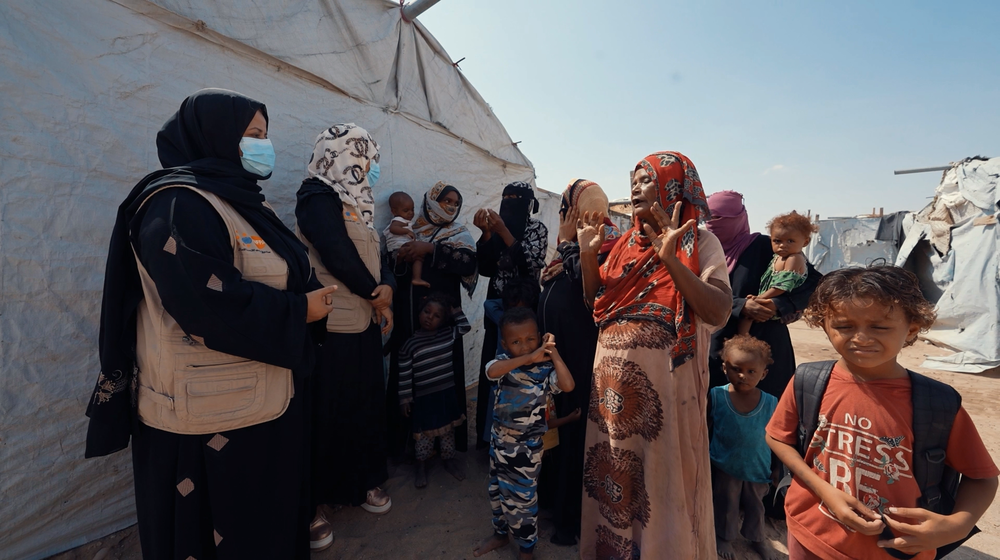Al Hudaydah, Yemen – “I felt death every kilometer to the hospital,” tells Halimah, 35, from a remote village in Al Dhahi District.
Halmiah, eight months pregnant and severely malnourished, was in intolerable labour pain, when her husband used up all his savings to hire a motorcycle – the only quick mode of transport available take Halimah to a health facility. The closest facility was 43 kilometers away.
More than eight years of conflict has impoverished Halimah and her family.
“The roads were very rough. I cannot describe the pain. I was holding on to my husband with all the strength left in me so I could save my child,” adds Halimah.
Four hours later, Halimah reached Al Dhahi Rural Hospital – a UNFPA supported health facility with funding from the Central Emergnecy Response Fund (CERF).
The health team rushed Halmiah for delivery. Halmiah safely delivered twin girls.
“Thank you for saving my daughters, if not for this hospital and its staff, I don’t know if me or my daughters would be alive today” tells a joyful Halimah.
Maternal mortality rates in Yemen remain extremely high; one of the highest in the Middle East and Northern Africa region. Less than half of births are assisted by skilled medical personnel and only one third of births take place in a health facility. Only 1 in 5 of the functioning facilities is able to provide maternal and child health services.
UNFPA supports 90 health facilities across the country to provide reproductive health services, reaching nearly a million women and girls with lifesaving reproductive health services since the beginning of 2023.




